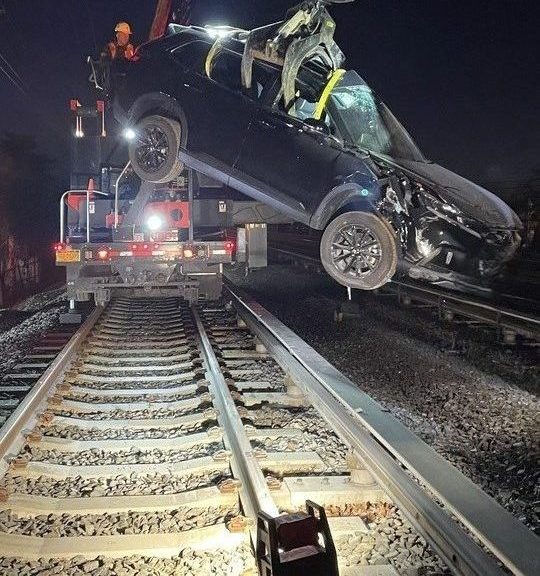Panelists discuss women’s economic and social challenges at Long Island Women’s Economic Empowerment Roundtable
One of the most iconic images to come out of World War II was the famous poster by artist J. Howard Miller featuring “Rosie the Riveter,” a tough, capable woman in a kerchief bearing her biceps, stating “We Can Do It!” Though many things have changed since the 1940s, Rosie’s indomitable spirit is what New York Senator Kirsten Gillibrand wished to invoke at the Friday, Oct. 7, Long Island Women’s Economic Roundtable.
The hour-long forum, featuring approximately thirty women business and community leaders from all over the island, was held at GSE Dynamics, a Hauppague defense manufacturer specializing in providing complex structural assemblies to the United States Air Force, Navy, and Army. Anton Newspapers publisher Angela Anton attended the forum. Though the panelists discussed varied topics including health care, the cost of college tuition and woman-to-woman mentoring, the defense backdrop brought to mind Rosie’s wartime origins.
Gillibrand began the forum by explaining the efficacy of the Rosie campaign. “By the end of World War II, six million women had entered the work force, forever changing the whole landscape of the American economy,” Gillibrand said. “I think we need a similar call to action today,” she said.
However, the situation is different in many respects; during Rosie’s time, there was too much work to be done and not enough workers to do it, leading to women taking on traditionally masculine jobs in large numbers.
In today’s economy, barring certain fields, labor shortage is not the issue. Gillibrand acknowledged that the situation was different.
“The problem then is not the same as the problem today; the problem then was that we needed women helping with manufacturing,” said Gillibrand in response to a question about Rosie’s relevance to the American economy today. “The problem today is that we need women as part of the decision-making fabric of the country,” she said, going on to say that it is women’s skills in planning and consensus-building that are sorely needed right now.
Gillibrand’s main point throughout the forum was that women’s involvement in the decision-making process, in both business and government, leads to better decisions and better outcomes. She explained to the panelists how she had observed this to be true in her political career.
“When I became a House member, five women were added to the Armed Services Committee, and it changed the nature of the debate on that committee,” she said. “We were talking about issues of military readiness, and you know, oftentimes our male colleagues would focus on, ‘Well, how many aircraft should we build? And how many submarines? How many tanks — all about the equipment. But the women started to take a different view and said “Well, why is the divorce rate so high? Why is the suicide rate so high? Why is the domestic violence rate so high?”
The senator went on to say that the women’s questions led to inquiries into soldiers’ mental health, struggles with posttraumatic stress disorder, familial relationships, and ability to sustain multiple tours of duty. “That’s a more complete analysis of ‘what does it take to have a strong military,’” continued the senator.
Financial Concerns
Much of the discussion focused on empowering women as entrepreneurs. Roslyn Goldmacher president and CEO of the Long Island Development Corporation (LIDC), part of a 501C3 not-for-profit economic development family that provides low-cost loan programs and free technical assistance to businesses and not-for-profit organizations in New York, said that the LIDC had just recently added women-owned businesses, as certified by New York State, as a targeted industry.
“But no matter how much we lend out, no matter how much we get the word out, the one thing I see out there is that women — owned businesses- — in fact, all entrepreneurial, small businesses- need access to capital,” said Goldmacher.
Leslie Tayne, an attorney specializing in consumer debt resolution and bankruptcy avoidance, agreed with Goldmacher that getting small business owners capital they need to operate is a huge area of need.
“There is business out there — my clients are telling me, there is business — but they can’t get enough lending in order to float the time between production and actual implementation,” said Tayne.
Tayne also noted that even among her most successful clients, financial literacy was poor; something many other panelists agreed with.
“We’ve got a next generation of leadership coming up; they understand nothing about credit,” said Theresa Sanders president and CEO of the Urban League of Long Island.
In response to these concerns, Gillibrand briefly discussed several items on her agenda, including working to increase the leverage for lending through credit unions, something that should help small businesses. She also discussed the possibility of creating workshops to educate women on important topics like financial literacy and wellness, to create a kind of “one-stop-shopping” for women’s empowerment.
Gemma de Leon, executive vice-president of the Retail, Wholesale And Department Store Union, Local 1102, which represents 13,000 retail workers, pointed out the economic difficulties for women lower on the socio-economic scale. According to de Leon, when the clothing store H&M was integrated into her union two years ago, many of the predominantly female retail workers were enrolled in college; this year, she found that many of the workers at H&M’s nine locations on Long Island are no longer attending college.
“The tuition for college has become unaffordable for young people in low socio-economic families,” said de Leon. “The length of service in retail now is getting longer and longer; people usually come to work in retail for a short period of time while they move ahead — now, they stay there, they’re kind of stuck there and they need a way to get out of it,” she continued, going on to suggest lowering the cost of college education to reverse this trend. Gillibrand responded that she seeks to double a current tax deduction for going to college.
Health Concerns
Another major topic of the forum was women’s health and health care in relation to financial security. Dr. Neeta Shah, vice president of Women’s Health Services, North Shore-LIJ Health System, pointed out that women often take on much of the responsibility for their entire family’s health care, neglecting their own health and damaging their economic prospects at the same time.
“We’re so bogged down with either our sickness, our family’s sickness, our children’s sickness, our grandparent’s sickness…we take care of everybody,” said Shah, arguing in favor of changing the health care paradigm from treating sickness to educating women to making lifestyle changes that can prevent chronic illness before it strikes.
“When we do mammography, that’s [considered] prevention- really? Is it?…it’s a screening tool, it does not prevent cancer,” said Shah, going on to say that massage therapy and other treatments that relieve stress and stave off illness should be covered by insurance.
Janine Logan, director of communications for the Nassau-Suffolk Hospital Council, pointed out that many hospitals do have wellness programs. She also stated that it would be unfortunate if the Affordable Care Act was dismantled, since it deals strongly with prevention; Gillibrand concurred, saying the emphasis on preventative care in the bill would help lower health care costs overall.
“Being healthy is fundamental to economic security. If you have cancer, or you have some ailment — you have no hope of keeping a job,” said Gillibrand.
Moving Forward: A Ten-Year Mission
Women have in fact reached academic parity with men, Gillibrand pointed out; today, more than half of the advanced degrees awarded in this country are earned by women. However, women have not reached economic and political parity with men: the senator stated that women earn 78 cents for every dollar a man makes, and that while one out of every seven men earns a six-figure salary, only one out of every fourteen women does.
Gillibrand remained adamant throughout the discussion that women needed to work towards achieving parity not only for the sake of themselves and their families, but that of the country as a whole, explaining that the purpose of these women’s economic forums was to come up with ideas to inform her legislative agenda: ideas to help women unleash their ingenuity and entrepreneurial spirits to help create economic growth.
“If there were 51 percent women in congress, do you imagine that we would have a better education system in this country?… If we had 51 percent women on corporate boards, do we imagine we would have had the financial collapse? No, because when women look at risk and long-term planning, they look at it totally differently,” said Gillibrand. The senator concluded the forum by stating that she saw empowering women in this manner as a ten-year mission.
Lois Schlissel, managing attorney of Meyer, Suozzi, English & Klein, P.C. located in Garden City, said it was an outrage that the pay disparity between men and women still exists in this day and age.
“I understand that in World War II, seven million women went into the work force; we shouldn’t have to wait for World War III for that to happen again,” said Schlissel.































